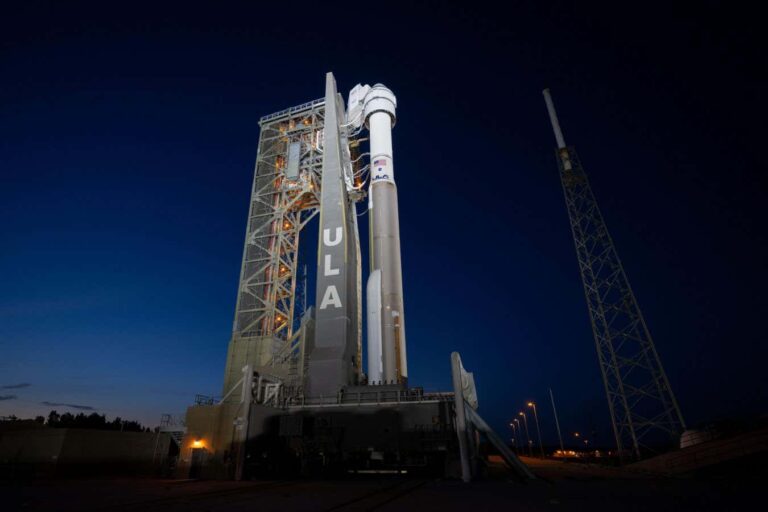Boeing CST-100 Starliner spacecraft at Kennedy Space Center in Florida
Joel Kowski/NASA Photo/Alamy Live News
Boeing is preparing for the first crewed flight of its Starliner spacecraft, a capsule that has been in development for more than a decade, and the historic flight will mark the beginning of a new era for the U.S. space industry.
When does the Starliner depart?
Starliner is due to lift off from Cape Canaveral, Florida at 17:25 BST (12:25pm local time) on June 1. The capsule will be carried on an Atlas V rocket, which has never previously carried a crewed flight.
The mission was scheduled to launch in May, but was delayed due to a malfunction of a valve on the rocket. The valve was replaced, but engineers discovered a helium leak in one of Starliner’s thrusters. Ultimately, NASA determined that the leak was not an issue and set a new launch date. “This leak is manageable even if the leak rate increases by up to 100 times,” NASA said. Steve Stitch He made the remarks at a press conference on May 24th.
How can I watch the Starliner launch?
NASA plans to livestream the launch. Website The launch will also be streamed on NASA’s YouTube channel. The webcast will begin approximately four hours before the launch. NASA also plans to broadcast the Starliner docking with the International Space Station (ISS) on June 2.
What is Starliner’s mission?
Because this is Starliner’s first manned test flight, the goal is simply to safely transport two passengers to the ISS. The two astronauts aboard the flight are Butch Wilmore and Sunita Williams, both of whom have already been to the ISS twice. The plan is for them to spend about a week on the ISS before returning to Earth. During the mission, the astronauts and spacecraft engineers on Earth will test Starliner’s hardware and software to ensure it is safe for future missions.
What does this mean for spaceflight in general?
NASA awarded similar contracts to Boeing and SpaceX in 2014 to build capsules to transport astronauts to and from the ISS. So far, Boeing’s Starliner has lagged behind SpaceX’s Dragon capsule, which made its first crewed flight in 2020. Now having two travel options to reach the ISS could change how spaceflight operates in the U.S. This could open up a wider playing field in orbit, as SpaceX has dominated human spaceflight in the U.S. for years.
topic:



